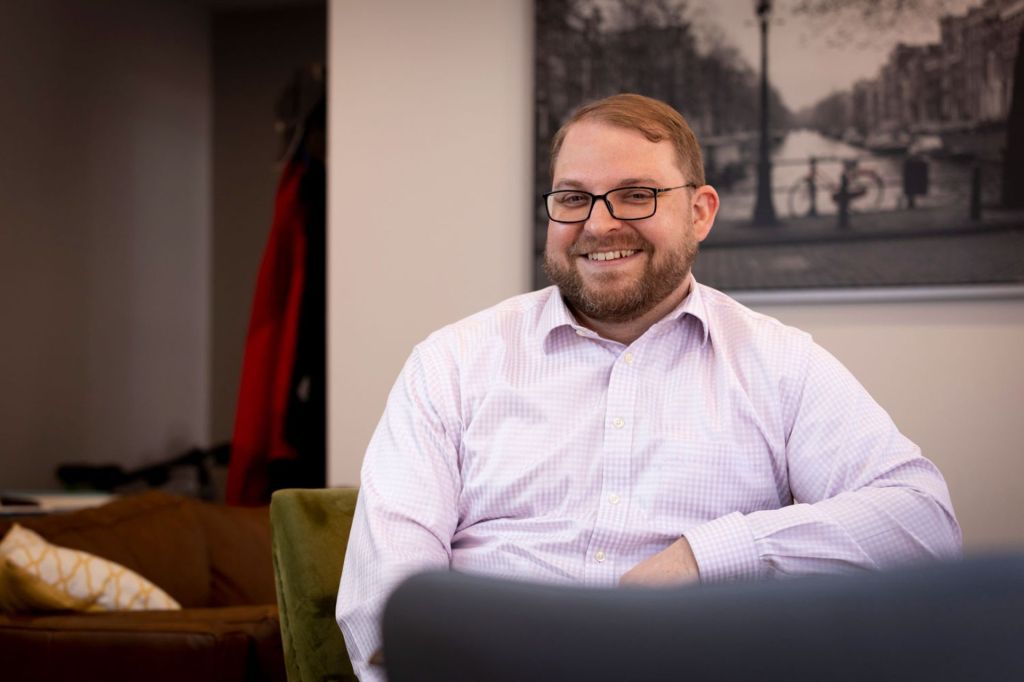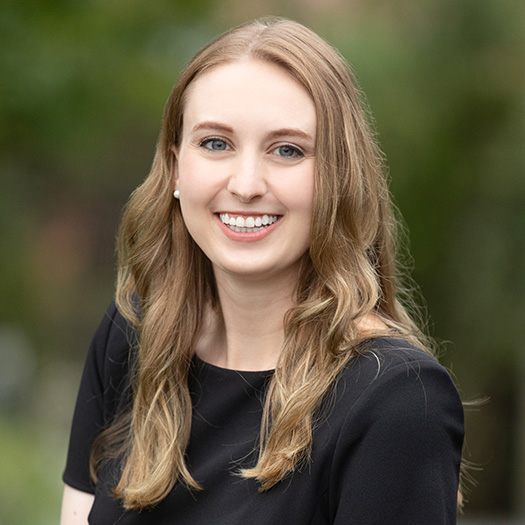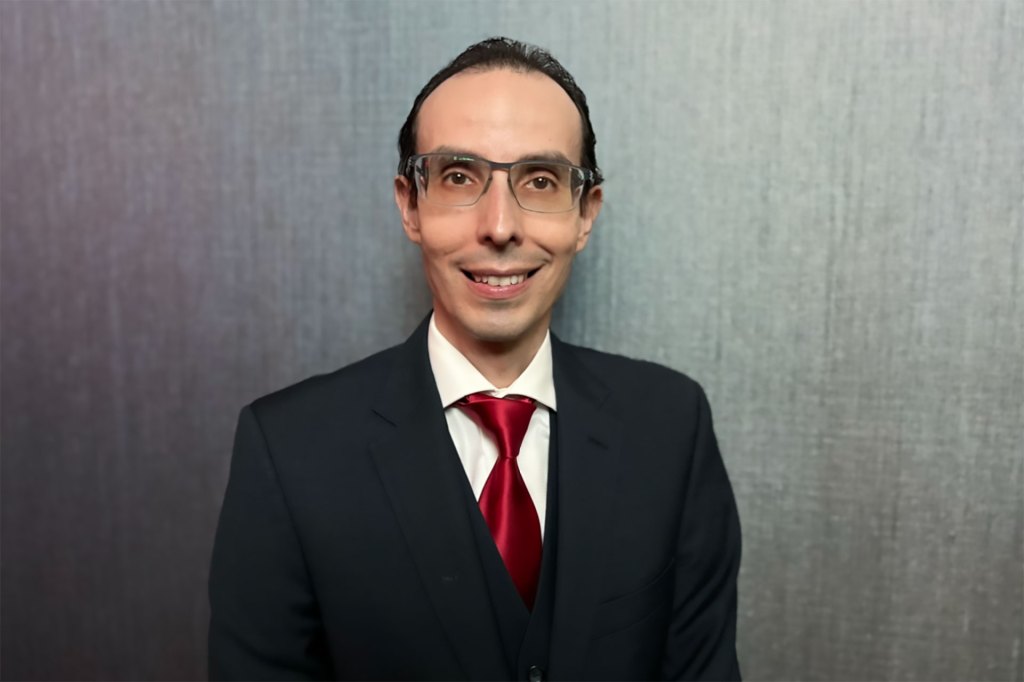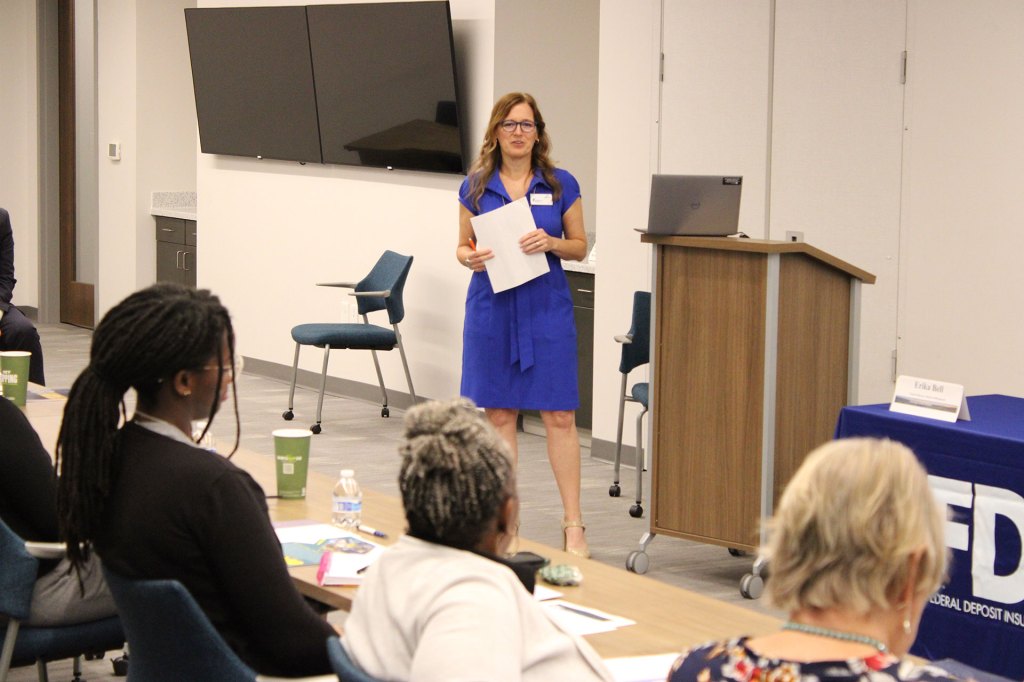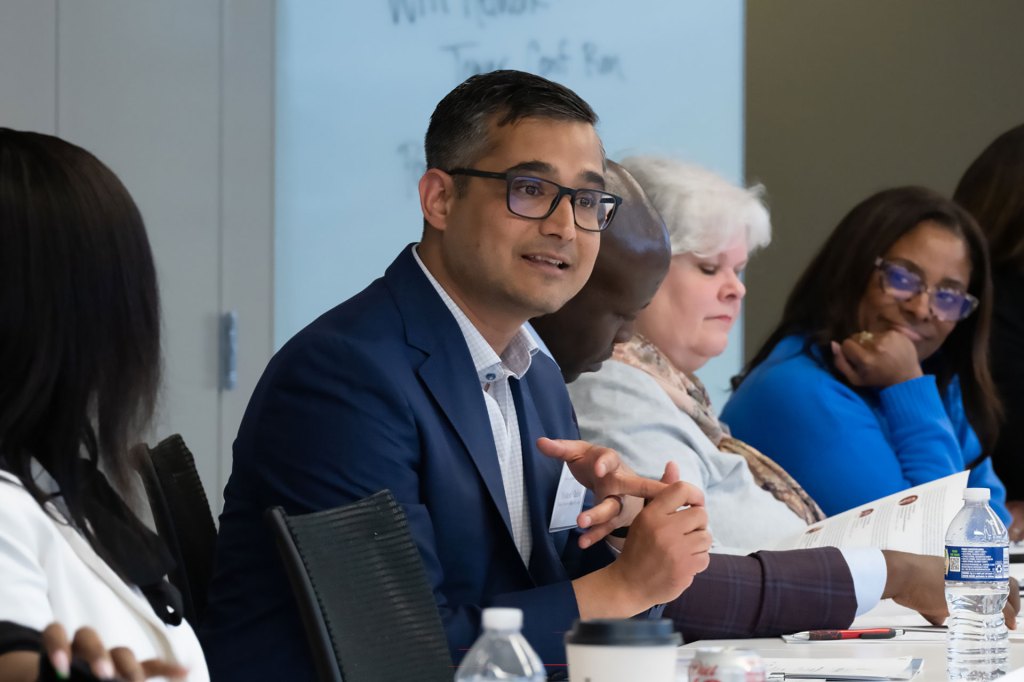Steven Howland, Associate Economist, Community Development, Kansas City Fed
Since his high school years, Steven Howland remembers being interested in what was happening in his community. He wanted to understand the reasons behind local decisionmaking in his hometown of Topeka, Kansas, and how residents were affected. He would often ask himself, “Why are these decisions being made?” Asking questions is a big part of who Steven was then, and still is today.
At the Federal Reserve Bank of Kansas City, Steven is an associate economist in the community development department. His role requires him to be curious and constantly seek information. The Kansas City Fed covers the Tenth Federal Reserve District, a vast area of the central US.
Steven’s primary focus is monitoring economic conditions for low- and moderate-income (LMI) residents across the region. He organizes projects to collect data, helping him understand the region’s economic strengths and challenges.
One of Steven’s key tasks is collecting data for the Beige Book, a Federal Reserve System effort that gathers informal accounts of current economic conditions in each District. This information includes reports from Bank and Branch directors, business contacts, economists, market experts, and other sources.
Steven also manages the Kansas City Fed’s Community Conditions Survey. This effort collects data twice yearly from regional organizations serving lower-income communities. Topics covered include employment and workforce development, housing, and small business, among others. The survey findings help the Fed understand changes in economic conditions and emerging local issues.
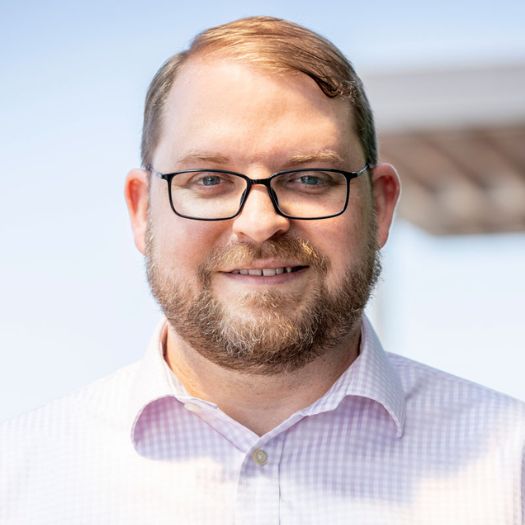
“I’m trying to better understand which low- and moderate-income populations are in a more stable situation and how they got there. What can we do to expand those types of opportunities?”
Connecting the dots through community development
Steven’s interest in communities comes from a combination of family influence, educational mentors, and his own observations of community challenges. He was inspired by his dad’s work as an engineer draftsman and planned to follow in his footsteps. But after starting his college journey in architecture, he quickly understood that he preferred to learn about the big picture. Steven says, “Instead of focusing on a single building, I was much more interested in the community that building was in.”
As an undergraduate student at Arizona State University, he interned in the human services department of the Maricopa Association of Governments, the Phoenix-area metropolitan planning organization. There, Steven examined where there were gaps in resources for low-income populations during the Great Recession. This opportunity confirmed his desire to be a researcher and find ways to help LMI populations. Since then, he’s studied poverty and the forces that affect vulnerable populations across the Kansas City Fed’s region.
Following his passion for communities, Steven earned undergraduate and graduate degrees in urban and environmental planning from Arizona State. He then earned his doctorate in urban studies from Portland State University.
He credits much of his career-development journey to professors who encouraged him to pursue his natural curiosity and desire to make a difference in people’s lives. Steven’s mindset was expanded by mentors with different viewpoints. They helped him connect the dots between his strengths and interests and find an unexpected path—becoming a researcher.
Through his education in Kansas, Arizona, and Oregon, Steven fell in love with community development. His rich experiences helped him understand different community development issues, methods, and research approaches. Ultimately, Steven came back to work at the Kansas City Fed, which he calls “practically home.”
After leaving Topeka to pursue his education, he finally returned to be with family and reconnect with his roots. Now he applies the many lessons of that journey in giving back to his community and region. After all, this place first set him on his path of personal and professional discovery.
Finding pathways to economic stability in vulnerable communities
As a researcher, Steven studies the local economy and helps coordinate community development outreach in his region. He sees himself as a translator, “finding meaning behind the information that Fed advisors gather.” He also uses current economic data to shape the questions they ask community members. This is important for understanding the economy, especially in areas where data may be scarce.
Throughout his journey, Steven learned the importance of hearing from the community. He uses both statistics and first-hand accounts of community experiences to understand how to tackle LMI challenges. He also researches specific efforts that could provide potential solutions. Finding practical applications for research and strategies that work drive Steven in his quest to make a difference.
“It’s important to know how LMI populations try to make ends meet,” he says. “Housing, employment, budget, finance, transportation—all these and many other factors combine to affect daily life.” While these same factors affect everyone, those who are most disadvantaged often have to make trade-offs on basic necessities.
So, Steven’s natural curiosity drives him to continue asking hard questions and conducting meaningful research. As always, he remains focused on ‘community’ and finding pathways to economic stability for vulnerable populations.






